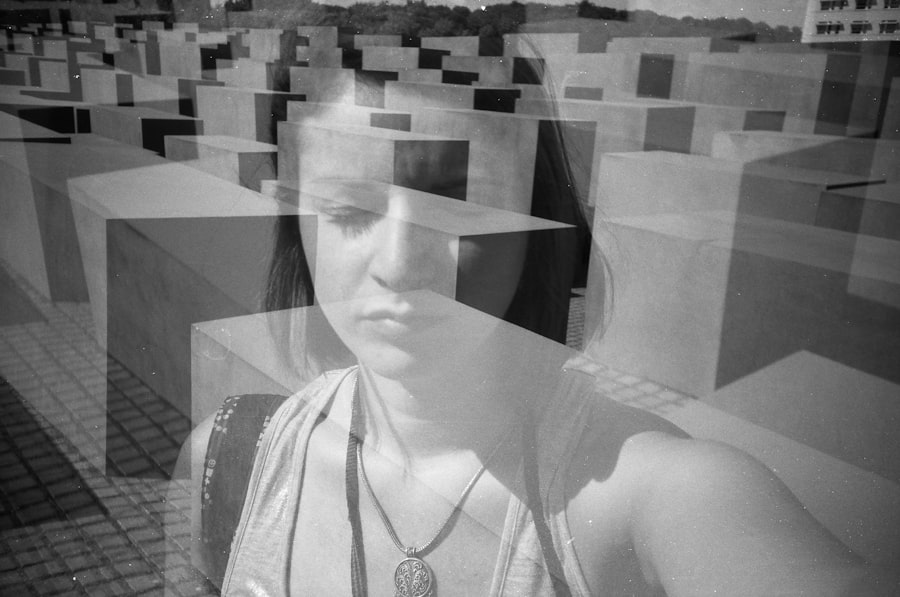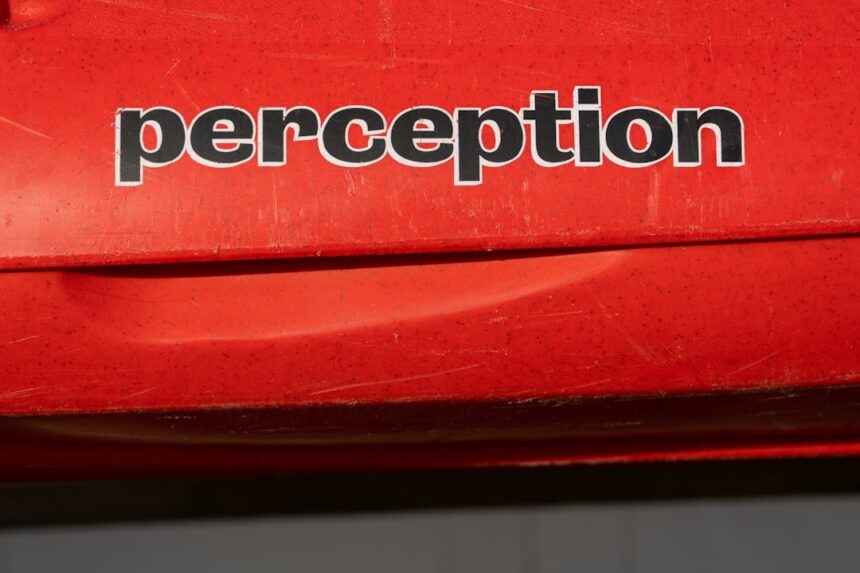Depersonalization and derealization are psychological phenomena that can leave you feeling detached from your own thoughts, feelings, or sense of self. When you experience depersonalization, it may feel as though you are an observer of your own life, as if you are watching yourself from a distance. This can lead to a sense of disconnection from your body or emotions, making it challenging to engage fully with your experiences.
On the other hand, derealization involves a sense of unreality regarding your surroundings. You might perceive the world around you as strange or dreamlike, as if everything is happening in a movie rather than in real life. These experiences can be unsettling and disorienting, often leading to confusion and anxiety.
While they can occur in isolation, they frequently manifest together, creating a complex interplay of feelings that can be difficult to articulate. Understanding these phenomena is crucial for recognizing their impact on your mental health and well-being. They are not uncommon; many people may experience fleeting moments of depersonalization or derealization at some point in their lives, particularly during times of stress or trauma.
Key Takeaways
- Depersonalization and derealization are dissociative disorders that involve feeling detached from oneself and the surrounding environment.
- Symptoms of depersonalization include feeling like an outside observer of one’s thoughts and actions, while derealization involves feeling like the world is unreal or distorted.
- Causes of depersonalization and derealization can include trauma, stress, anxiety, and substance abuse.
- Diagnosis of depersonalization and derealization in DSM-5 involves experiencing persistent or recurrent episodes of depersonalization or derealization that cause distress or impairment.
- Depersonalization and derealization can co-occur with other mental health disorders such as anxiety, depression, and PTSD.
Symptoms of Depersonalization and Derealization
The symptoms of depersonalization and derealization can vary widely from person to person, but they often share common threads. You might find yourself feeling detached from your body, as if you are watching yourself from outside. This sensation can be accompanied by a lack of emotional response to events that would typically elicit strong feelings.
For instance, you may feel numb or indifferent during moments of joy or sadness, which can be distressing and confusing.
Familiar places might seem unfamiliar, and everyday objects can appear strange or distorted.
You might feel as though you are living in a dream or that the world around you lacks depth and significance. These symptoms can lead to significant distress and may interfere with your ability to function in daily life. Recognizing these symptoms is the first step toward understanding what you are experiencing and seeking appropriate help.
Causes of Depersonalization and Derealization

The causes of depersonalization and derealization are complex and multifaceted. Often, these experiences are linked to extreme stress or trauma. For instance, if you have gone through a traumatic event—such as an accident, abuse, or the loss of a loved one—you may find yourself experiencing these feelings as a coping mechanism.
Your mind may create a sense of detachment as a way to protect you from the emotional pain associated with the trauma. Additionally, certain mental health conditions can contribute to the onset of depersonalization and derealization. Anxiety disorders, depression, and post-traumatic stress disorder (PTSD) are often associated with these experiences.
Substance use can also play a role; for example, the use of hallucinogenic drugs or excessive alcohol consumption can trigger episodes of depersonalization or derealization. Understanding the underlying causes is essential for addressing these symptoms effectively and finding appropriate treatment options.
Diagnosis of Depersonalization and Derealization in DSM-5
| Criteria | Description |
|---|---|
| Depersonalization | Experiences of unreality, detachment, or being an outside observer with respect to one’s thoughts, feelings, sensations, body, or actions. |
| Derealization | Experiences of unreality or detachment with respect to surroundings (e.g., individuals or objects are experienced as unreal, dreamlike, foggy, lifeless, or visually distorted). |
| Duration | Symptoms persist for an extended period of time and cause significant distress or impairment in social, occupational, or other important areas of functioning. |
| Exclusion | Symptoms are not attributable to the physiological effects of a substance or another medical condition. |
The Diagnostic and Statistical Manual of Mental Disorders, Fifth Edition (DSM-5), provides criteria for diagnosing depersonalization/derealization disorder. According to the DSM-5, for a diagnosis to be made, you must experience persistent or recurrent episodes of depersonalization, derealization, or both. These episodes should cause significant distress or impairment in social, occupational, or other important areas of functioning.
It is important to note that the symptoms must not be attributable to the physiological effects of a substance or another medical condition. This means that if you are experiencing these feelings due to drug use or another health issue, they may not qualify for this specific diagnosis. The DSM-5 emphasizes the need for a thorough evaluation by a mental health professional to ensure an accurate diagnosis and appropriate treatment plan tailored to your needs.
Depersonalization and Derealization in Relation to Other Mental Health Disorders
Depersonalization and derealization often coexist with other mental health disorders, complicating the clinical picture. For instance, individuals with anxiety disorders may experience these symptoms as part of their overall anxiety response. Similarly, those with depression may find that feelings of detachment exacerbate their emotional struggles.
Understanding how these experiences relate to other conditions is crucial for effective treatment. Moreover, depersonalization and derealization can also be seen in individuals with borderline personality disorder (BPD) or dissociative disorders. In these cases, the symptoms may serve as coping mechanisms for overwhelming emotions or traumatic memories.
Recognizing the interplay between these disorders can help you and your mental health provider develop a comprehensive treatment plan that addresses all aspects of your mental health.
Impact of Depersonalization and Derealization on Daily Life

The impact of depersonalization and derealization on daily life can be profound. You may find it challenging to engage in relationships or activities that once brought you joy. The sense of detachment can create barriers to emotional connection with others, leading to feelings of isolation and loneliness.
This disconnection can also affect your ability to perform at work or school, as concentration and motivation may wane when you feel disconnected from reality. Additionally, the anxiety that often accompanies these experiences can further complicate daily functioning. You might become hyper-aware of your symptoms, leading to increased self-consciousness and avoidance behaviors.
This cycle can create a feedback loop where the more you try to escape these feelings, the more they persist. Understanding how these experiences affect your daily life is essential for developing strategies to cope and seek help when needed.
Treatment Options for Depersonalization and Derealization
Treatment options for depersonalization and derealization vary depending on individual circumstances but often include psychotherapy as a primary approach. Cognitive-behavioral therapy (CBT) has shown promise in helping individuals understand and reframe their thoughts related to these experiences. Through CBT, you can learn coping strategies to manage anxiety and reduce the frequency or intensity of episodes.
In some cases, medication may be prescribed to address underlying conditions such as anxiety or depression that contribute to depersonalization and derealization symptoms. Antidepressants or anti-anxiety medications may help alleviate some of the distress associated with these experiences. However, medication should always be considered as part of a comprehensive treatment plan that includes therapy and lifestyle changes.
Coping Strategies for Depersonalization and Derealization
Coping strategies play a vital role in managing depersonalization and derealization symptoms effectively. Mindfulness practices can be particularly beneficial; by focusing on the present moment, you can ground yourself in reality and reduce feelings of detachment. Techniques such as deep breathing exercises or guided meditation can help anchor you when experiencing overwhelming sensations.
Engaging in physical activities can also serve as an effective coping mechanism. Exercise releases endorphins that improve mood and promote a sense of well-being. Additionally, maintaining a routine can provide structure and stability in your life, helping you feel more connected to your daily experiences.
Finding supportive friends or family members who understand what you’re going through can also make a significant difference in your journey toward healing.
Seeking Help for Depersonalization and Derealization
If you find yourself struggling with depersonalization or derealization, seeking help is crucial. A mental health professional can provide guidance tailored to your specific needs and circumstances. They will conduct a thorough assessment to understand your symptoms better and develop an appropriate treatment plan.
It’s important to remember that reaching out for help is a sign of strength rather than weakness. Many people experience similar feelings at some point in their lives; you are not alone in this journey. Support groups or online communities can also offer valuable resources and connections with others who understand what you’re going through.
Research and Developments in Understanding Depersonalization and Derealization
Research into depersonalization and derealization has expanded significantly in recent years, shedding light on the underlying mechanisms behind these phenomena. Studies have explored the neurobiological aspects of these experiences, examining how brain activity differs during episodes of detachment compared to normal states of consciousness. This research aims to identify potential biomarkers that could aid in diagnosis and treatment.
Furthermore, advancements in therapeutic approaches continue to emerge as researchers seek effective interventions for those affected by these symptoms. New techniques such as virtual reality therapy are being explored as potential tools for helping individuals confront their feelings of detachment in a controlled environment. As our understanding deepens, it opens up new avenues for support and recovery.
Support and Resources for Individuals with Depersonalization and Derealization
Finding support is essential when navigating the challenges associated with depersonalization and derealization. Numerous resources are available for individuals seeking help or information about their experiences. Mental health organizations often provide educational materials, helplines, and support groups where you can connect with others facing similar challenges.
Online forums and communities dedicated to mental health topics can also offer valuable insights and shared experiences from individuals who understand what you’re going through. Remember that seeking support is an important step toward healing; you don’t have to face this journey alone. By reaching out for help and utilizing available resources, you can take proactive steps toward regaining control over your mental health and well-being.
Depersonalization and derealization are dissociative disorders characterized by persistent or recurrent feelings of detachment from one’s self or surroundings, as outlined in the DSM-5. These experiences can be distressing and impact daily functioning. For a deeper understanding of these conditions, you can explore an insightful article on the topic at Unplugged Psych. This resource provides valuable information on the symptoms, causes, and treatment options for depersonalization and derealization.



